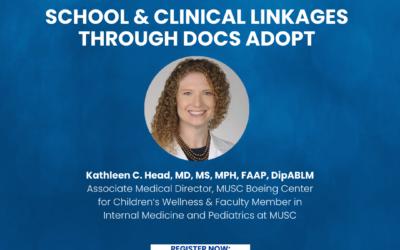https://youtu.be/lyWFshMVdjw?si=2IWBwzIkfWCD9Ve0
Healthy Palmetto
School & Clinical Linkages Through Docs Adopt
https://youtu.be/THeM6yiBFus
How to Get Fresh Fruits and Vegetables to Students
https://youtu.be/mIO8OZ2xEgg
Advancing Impact: Implementing Our New Four-Year Strategic Plan
A strategic plan is more than a roadmap—it is a living document that guides an organization’s direction, priorities, and decision-making. It reflects evolving challenges, opportunities, and community needs. As we launch our new four-year strategic plan, we embrace...
Healthy Palmetto Unveils Statewide Action Plan for Healthy Eating and Active Living
The newly launched Action Plan focuses on six strategic priorities developed through extensive collaboration among experts and community stakeholders.
Ruffin School: A Historic Landmark’s New Future
Find out how a local non-profit is turning the old Ruffin School into a community center and using a HEAL Mini-Grant to revitalize the baseball field.
SC State House Update: Bills are moving and new relationships are happening
We are actively engaged in advocating with our SC State House legislators to include health in all policies.
Inclusive Health Training w/ Special Olympics South Carolina
https://youtu.be/sO2Wj5ViUzE
Ashley Cox, MHS, NDTR
Mission Service Lead Ashley@wholespire.org









